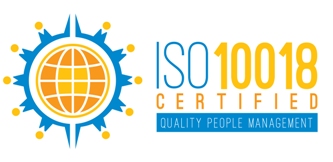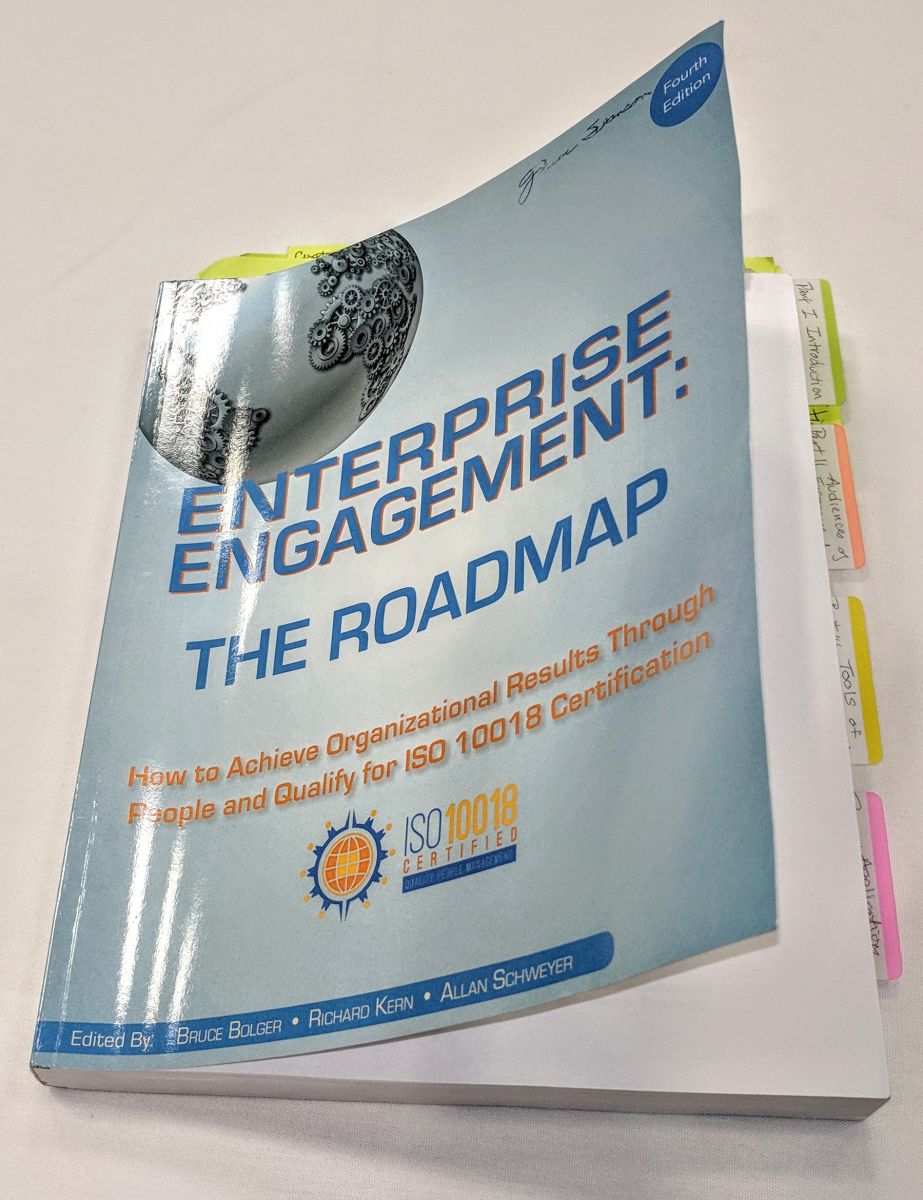New York Times Column Signals Potential Public Debate on 'Accountable Capitalism'
Whether or not Elizabeth Warren’s Accountable Capitalism Act ever sees the light of day, she has raised an issue that is troubling many Americans, as highlighted in a recent David Leonard column in the New York Times. The politicization of the issue of engaging all stakeholders is yet another reason why Enterprise Engagement will get C-suite attention.
In a recent New York Times op-ed piece, columnist David Leonard argues that “American Capitalism Isn’t Working” and that companies need a new type of leader that values “employees and communities.” His piece asks the same question raised earlier by his colleague, David Brooks, in another column, “It’s Not the Economy Stupid,” namely: Why do 60% of people feel dissatisfied with the direction of the country, and why do only 40% of Millennials see capitalism in a positive light despite the current period of record employment?
A growing chorus of questions like these can have a direct impact on the regulatory environment for large companies. In his column, Leonard tells the story of William B. Benton, a co-founder of the Benton & Bowles ad agency, who he says led a corporate lobbying group arguing for a plan to foster post-war posterity. The column quotes Benton as writing in a report entitled “The Economics of a Free Society”: “Today victory is our purpose….Tomorrow our goal will be jobs, peacetime production, high living standards and opportunity.” According to Leonard, Benton’s group understood the need for American businesses to accept “necessary and appropriate government regulation,” as well as labor unions. “It depended on companies not earning their profits ‘at the expense of the welfare of the community.’ It depended on rising wages.”
Principles Based on Prosperity
Leonard asserts that “these leftist-sounding ideas weren’t based on altruism. The Great Depression and the rise of European fascism had scared American executives. Many had come to believe that unrestrained capitalism was dangerous—to everyone.” He believes that “in the years that followed, corporate America largely followed this prescription. Not every executive did, of course, and management and labor still had bitter disputes. But most executives behaved as if they cared about their workers and communities. C.E.O.s accepted pay packages that today look like a pittance. Middle-class incomes rose faster in the 1950s and 1960s than incomes at the top. Imagine that: declining income inequality. And the economy—and American business—boomed during this period, just as Benton and his fellow chieftains had predicted.”
The general corporate focus changed, Leonard states, in the 1970s, when with “more global competition and higher energy prices, and with Great Depression memories fading, executives became more aggressive. They decided that their sole mission was maximizing shareholder value. They fought for deregulation, reduced taxes, union-free workplaces, lower wages and much, much higher pay for themselves. They justified it all with promises of a wonderful new economic boom. That boom never arrived,” he writes.
In fact, “Even when economic growth has been decent, as it is now, most of the bounty has flowed to the top. Median weekly earnings have grown a miserly 0.1% a year since 1979. The typical American family today has a lower net worth than the typical family did 20 years ago. Life expectancy, shockingly, has fallen this decade.”
Leonard calls for what some would say are drastic new measures, including higher taxes on the wealthy and consideration of Elizabeth Warren’s proposed Accountable Capitalism Act (See Sen. Elizabeth Warren Proposes Bill That Would Mandate Enteprise Engagement Practices at Large Companies), which would require CEOs and corporate boards “to take into account the interests of customers, employees and communities,” and require large companies (sales of over $1 billion) to obtain a special charter from a new Department of Commerce division that could be revoked for systematic bad behavior.
Yet Another Source of Pressure on the C-Suite
Whether Warren’s plan is the best, “I’m not sure,” Leonard continues. “I want to see politicians and experts hash out her idea and others—much as they hashed out healthcare policy in the 2008 campaign…American capitalism isn’t working right now. If Benton and his fellow postwar executives returned with the same ideas today, they would be branded as socialists. In truth, they were the capitalists who cared enough about the system to save it. The same goes for the new reformers.”
This column and Elizabeth Warren’s proposed Accountable Capitalism Act provide yet another reason for CEOs of all organizations to grasp the significant opportunity offered by having a strategic and tactical plan for engaging stakeholders, if only to stay ahead of the regulators and public opinion:
• ISO, the International Organization for Standardization, now requires CEO-led stakeholder engagement programs in 60 standards, including ISO 9001 Quality Management and ISO 45001 Safety Management, and will shortly issue new standards for human capital practices disclosures.
• Investors with over $15 trillion in capital now are demanding that public companies disclose human capital investments and outcomes.
• The Securities & Exchange Commission is considering a new requirement for the disclosure of human capital practices by public companies.
• A Social and Human Capital Coalition of leading companies is in the process of developing a formal framework for the voluntary disclosure of human capital investments and outcomes, and several leading indices tracking sustainable companies now include human capital investments and outcomes.
With so many voices echoing the same chorus at the same time, it’s inevitable that boards and CEOs in all economic sectors will begin asking themselves the simple question: can they benefit from a strategic and systematic approach to engaging all their stakeholders and, if so, how to get started?
In Print: Enterprise Engagement: The Roadmap 4th Edition, How to Achieve Organizational Results Through People and Quality for ISO 10018 Certification.
 Services: The International Center for Enterprise Engagement at TheICEE.org, offering: ISO 10018 certification for employers, solution providers, and Enterprise Engagement technology platforms; Human Resources and Human Capital audits for organizations seeking to benchmark their practices and related Advisory services for the hospitality field.
Services: The International Center for Enterprise Engagement at TheICEE.org, offering: ISO 10018 certification for employers, solution providers, and Enterprise Engagement technology platforms; Human Resources and Human Capital audits for organizations seeking to benchmark their practices and related Advisory services for the hospitality field.
Master the Principles of Enterprise Engagement to Achieve Organizational Goals and Enhance Your Career
- Profit from a new systematic approach to engagement to enhance your organization’s brand equity; increase sales, productivity, quality, innovation, and safety, and reduce risks.
- Achieve ISO 10018 Quality People Management Certification to demonstrate your organization’s strategic commitment to people to your customers, employees, distribution partners, vendors, communities, investors, and regulators.
Live Education: Enterprise Engagement in Action Conference at Engagement World, April 3, 2019, in San Francisco, in conjunction with the Selling Power Sales 3.0 Conference. Learn about the economics, framework, and implementation process for an ISO certifiable approach to achieving organizational objectives by strategically fostering the proactive involvement of all stakeholders. Learn more and register now. 

In Print: Enterprise Engagement: The Roadmap 4th Edition, How to Achieve Organizational Results Through People and Quality for ISO 10018 Certification.
The first and most comprehensive book on Enterprise Engagement and the new ISO 9001 and ISO 10018 quality people management standards.
Online: The Enterprise Engagement Academy at EEA.tmlu.org, providing the only formal training on Enterprise Engagement and the new ISO 9001 and ISO 10018 quality people management standards. Provides preparation for professionals to support organizations seeking ISO 10018 employer or solution provider certification, as well as elective courses on Trade Show Engagement, Rewards and Recognition, Government, and other topics.
Plus: 10-minute short course: click here for a 10-minute introduction to Enterprise Engagement and ISO standards on Coggno.com.
 Services: The International Center for Enterprise Engagement at TheICEE.org, offering: ISO 10018 certification for employers, solution providers, and Enterprise Engagement technology platforms; Human Resources and Human Capital audits for organizations seeking to benchmark their practices and related Advisory services for the hospitality field.
Services: The International Center for Enterprise Engagement at TheICEE.org, offering: ISO 10018 certification for employers, solution providers, and Enterprise Engagement technology platforms; Human Resources and Human Capital audits for organizations seeking to benchmark their practices and related Advisory services for the hospitality field.
The Engagement Agency at EngagementAgency.net, offering: complete support services for employers, solution providers, and technology firms seeking to profit from formal engagement practices for themselves or their clients, including Brand and Capability audits for solution providers to make sure their products and services are up to date.
C-Suite Advisory Service—Education of boards, investors, and C-suite executives on the economics, framework, and implementation processes of Enterprise Engagement.
Speakers Bureau—Select the right speaker on any aspect of engagement for your next event.
Mergers and Acquisitions. The Engagement Agency’s Mergers and Acquisition group is aware of multiple companies seeking to purchase firms in the engagement field. Contact Michael Mazer in confidence if your company is potentially for sale at 303-320-3777.
Mergers and Acquisitions. The Engagement Agency’s Mergers and Acquisition group is aware of multiple companies seeking to purchase firms in the engagement field. Contact Michael Mazer in confidence if your company is potentially for sale at 303-320-3777.
Enterprise Engagement Benchmark Tools: The Enterprise Engagement Alliance offers three tools to help organizations profit from Engagement. Click here to access the tools.
• ROI of Engagement Calculator. Use this tool to determine the potential return-on-investment of an engagement strategy.
• EE Benchmark Indicator. Confidentially benchmark your organization’s Enterprise Engagement practices against organizations and best practices.
• Compare Your Company’s Level of Engagement. Quickly compare your organization’s level of engagement to those of others based on the same criteria as the EEA’s Engaged Company Stock Index.
• Gauge Your Personal Level of Engagement. This survey, donated by Horsepower, enables individuals to gauge their own personal levels of engagement.
For more information, contact Bruce Bolger at Bolger@TheEEA.org, 914-591-7600, ext. 230.














